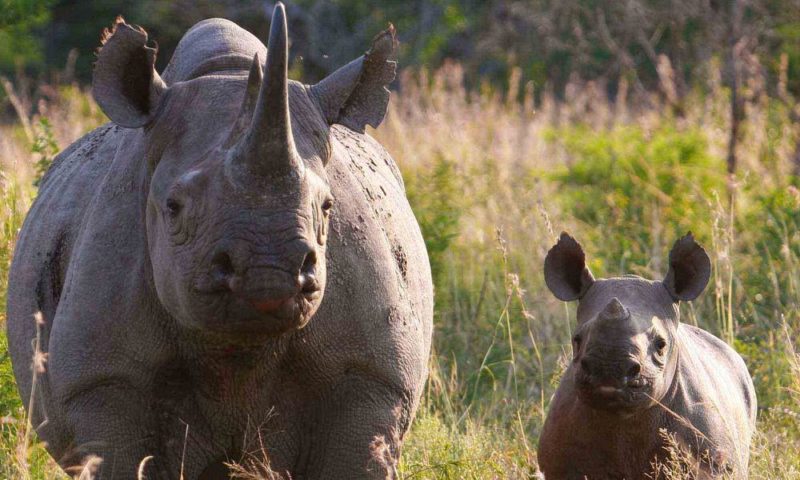South African rhino poaching numbers for the last year show a decline for the second consecutive year due to concerted conservation efforts. However, there is still a long road ahead as Africa continues to lose an average of three rhinos a day to the ongoing poaching crisis, the World Wide Fund for Nature (WWF) has said.

In 2016 alone, 1,054 rhinos were reported killed in South Africa. The organisation specialising in wildlife conservation and endangered species regards this as a slight decline from 1,175 in 2015 and 1,215 in 2014, pointing out that the 2016 figures represent a loss in rhinos of approximately 6% in South Africa, “which is close to the birth rate, meaning the population remains perilously close to the tipping point”.
“Criminals kill rhinos for their horns, which are mistakenly believed to cure a variety of ailments from fevers to blood disorders to hangovers,” observes the WWF.
According to the international non-governmental organisation, other major rhino range states in Africa have reported declines, with 61 rhinos reported killed in Namibia, down from 91 in 2015. South Africa, Namibia, and Zimbabwe are home to nearly 95 percent of all remaining African rhinos, it adds.
“South Africa’s Kruger National Park, home to the world’s largest white rhino population, successfully achieved a decline in the number of poached rhinos last year, despite an increase in the number of reported illegal entries into the 4.8 million acre park.
“These latest figures highlight the impacts of poaching sweeping across South Africa as criminal syndicates shift their focus in response to law enforcement actions. Key populations in the South African province KwaZulu-Natal bore the brunt of the poaching, with 161 rhinos killed in 2016 – an increase of 38% from the previous year,” the group stresses.
Stressing the need to curb the trend, WWF describes wildlife crime as the most immediate threat to wild rhinos, elephants, and tigers, adding that demand for rhino horns – along with elephant ivory and tiger products – runs rampant in parts of the world, particularly in Asia.
“WWF works to stop rhino poaching and emphasises the need for not just law enforcement response, but also involvement of local communities around protected areas.
“Together, we need to commit to long-term demand reduction efforts to protect rhinos,” the body concludes.

Due to government negligence not only Rhinos are under threat but including Hippos.
One of the ways to help reduce the demands on Rhinos horn is by decommissioning the use of rhinos horns all over the world in making merchandise.
Two,Chelsea Clinton approach should be adhere to by informing the buyers of such forbidding merchandise On where such merchandise had come from and the threat that such animals face on extinction.
totally correct couldnt agree more